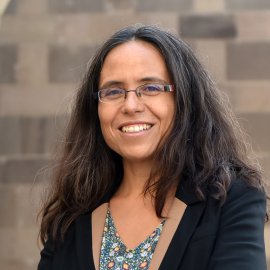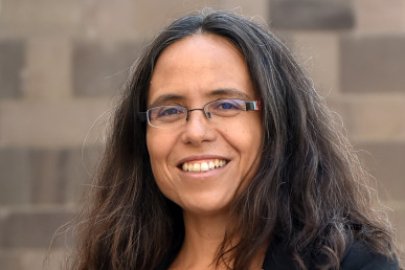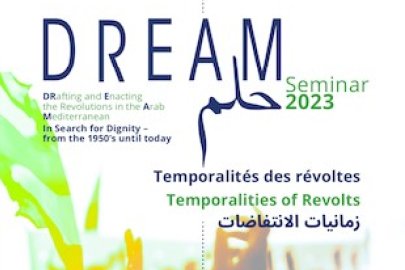Gender, Narrative and Nationalist Movement: Auto/biographical Narratives of Women in Egypt 1919.

Octobre 2022 à juin 2023
Dina Heshmat is Assistant Professor of Arabic literature at the American University in Cairo. Her research deals with the relationship between urban and historical contexts and literary narratives.
Her current work focuses more specifically on literary and cinematic renderings of moments of revolt and revolution in Egypt. Her latest book, Egypt 1919: The Revolution in Literature and Film, published at Edinburgh University Press in 2020 has been translated into Arabic (Dar al-Shuruq, 2021).
She is also the author of Cairo in Modern and Contemporary Egyptian Literature (Cairo, Supreme Council of Culture, 2007, in Arabic). In addition, she has written about gender in literature and cinema, diaries of the 2011 revolution and the intersection between journalistic and literary writing.
She has contributed to a variety of publications, both academic and non-academic, including Arabica, Alif, The Encyclopedia of Islam, Jadaliyya, Orient XXI and Akhbar al-Adab.
Gender, Narrative and Nationalist Movement: Auto/biographical Narratives of Women in Egypt 1919.
Women were active participants in the anti-colonial revolution of 1919 in Egypt, both as nationalist and feminist militants. Yet their voices are mostly forgotten in the dominant narrative about 1919.
This project aims at retrieving their autobiographical narratives, by looking at a wide range of texts they authored, including memoirs, articles, poems, short stories, and unpublished letters. Building on the work of scholars who have argued that traces of autobiography can be found in other genres of writing, I contend that these occasional literary productions, journalistic writings and personal letters can be read as autobiographical narratives attempting to write the self in a hostile context. Read alongside more conventional memoirs, the multi-layered narratives of those women emerge, expressing feelings of anger, fear and loneliness, in addition to strong nationalist and feminist commitment.
Contextualized through a systematic reading of the contemporary press, these scattered narratives then come together as a puzzle to articulate a collective voice, shaped by a sense of belonging to a community of strong feminine solidarities and friendships, while also haunted by class disparities and occasional political tensions. In addition to its contribution to autobiography and gender studies, this project has both individual and collective biographical ambitions, as it attempts to reinscribe in the memory of 1919 the voices of women lost in the repetitive remembering of a few famous names.
In doing so, it also enriches the overall historical scholarship around the 1919 revolution.
Egypt 1919: The Revolution in Literature and Film, Edinburgh University, June 2020 (Arabic translation by Shuhrat al-Alim, Dar al-Shuruq, 2021)
Cairo in Modern and Contemporary Egyptian Literature (in Arabic), Supreme Council of Culture, Cairo, 2007 (PhD dissertation, my own translation)

